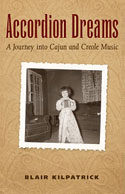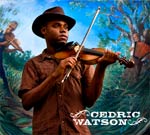Ever since the Polka and Cajun/Zydeco categories were eliminated from the Grammys, it’s been tougher for accordion-toting artists to bring home Grammy hardware. But that didn’t stop some of our favorites from breaking through at this year’s event.
Los Angeles’s La Santa Cecilia has been building a national following over the past couple years and won Best Latin Rock/Urban/Alternative Album last night for their major label debut, Treinta DÃas. If you haven’t heard their unique and lively fusion of rock, jazz, and latin rhythms—and the incredible voice of Marisol Hernandez—check out their NPR Tiny Desk Concert.
Louisiana’s Terrance Simien & The Zydeco Experience won Best Regional Roots Music Album for their Dockside Sessions. Not only is Simien a fantastic musician, he was a key figure in the creation of the short-lived Best Cajun/Zydeco Album Grammy back in 2008 (which he later won).
Zydeco legend Clifton Chenier was also honored posthumously with a Grammy Lifetime Achievement Award. If you watched the prime-time show last night, you may have noticed that The Beatles received the same award. Pretty good company for the King of Zydeco, eh?

 Today we’re closing the book, so to speak, on our Q&A series with
Today we’re closing the book, so to speak, on our Q&A series with 
